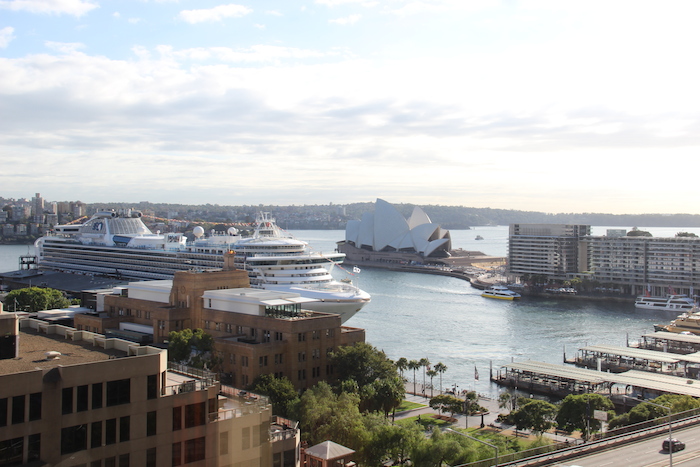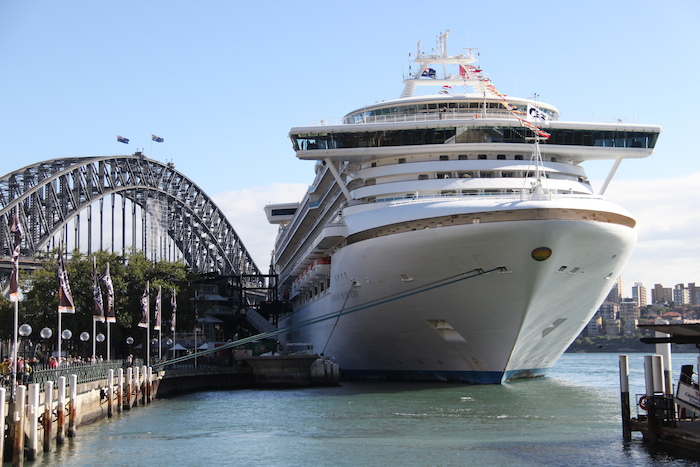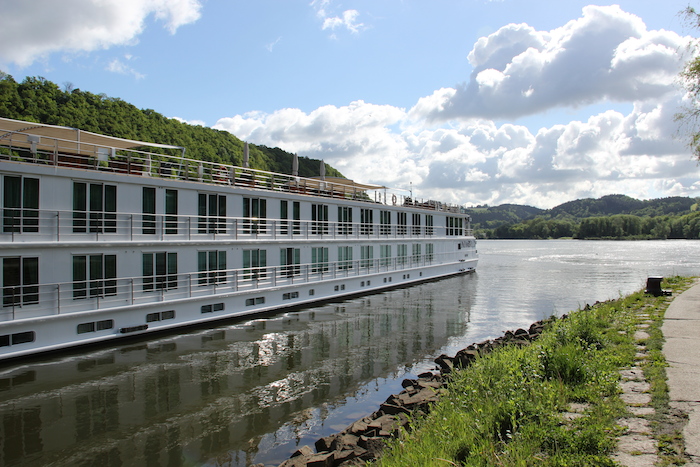Essential cruising tips: How to get the best cruise deals?
Comparing fares is a popular pastime on most cruises I have been on. Travellers are always eager to brag about how little they paid compared to everyone else on board. In practice the amount paid does vary and there are many factors at play. The price you pay for your specific trip will inevitably be somewhere on the continuum where the highest is what the line is trying to achieve and at the lowest is your desire to pay them the least you have to. What you pay will depend on what compromises you are prepared to make.
I have the following tips for getting the best fare based on my experiences and what other passengers and agents have shared with me.
Sign up for the cruise line and cruise agent aggregator emails
This is the best way to keep up to date on when new itineraries are launched as well as the latest deals and promotions. Most lines and agents that sell cruises send regular emails promoting future cruises, deals to sell off excess capacity and slower selling itineraries. Visit websites of lines that appeal to you and join their mailing lists. You should also browse the latest offers which will be displayed on their home page or via links while there.
The best deals will usually be for cruises departing within 90 days. This is the deadline for travellers with existing bookings to pay the final balance of their fare. The line then knows with greater certainty the capacity they still need to sell. Most want to sail with full ships as they make significant income from on-board expenditure and offer deep discounts, upgrades or on-board credit to fill the remaining cabins. Only the ultra-luxury lines like Silversea, Crystal and Seabourn tend to avoid discounting to maintain their premium experience and are prepared to sail with empty berths if required.
Bookings made within 90 days will usually have to be paid in full and are non-refundable.
Be flexible
The more flexible you are, the lower your fare is likely to be. If you are set on going on a specific cruise on a specific date in a specific stateroom, you will probably pay the highest fare as you will need to book it early to guarantee it. Some passengers will book these a year or more ahead of time to ensure they get exactly what they want. Cruise lines understand this and usually launch new itineraries at the best price they think they can achieve. Prices may get higher if demand is high but are more likely to go down over time.
If you are completely flexible on where you go, when you go and what stateroom grade or number you go in, you will get the best fare as you can book late and take the best deal. Most travellers are likely to fall between these two extremes and so here are my tips on still getting a good deal:
- Book a guaranteed grade rather than a specific level or stateroom. Cruise lines will usually offer a fare for each grade on their ships, for example an inside, ocean view, balcony or suite and then charge a premium for booking a specific cabin within each of these. Close to departure you will be allocated a stateroom based on how full the sailing is and which individual ones have been reserved. It is possible you may get a superior cabin in that grade. For example, on Cunard we once got a wheelchair access room but another time got a large penthouse suite with two bathrooms and dining room when we had booked the guaranteed grade.
- Accept an auto-upgrade option if it is offered to you. If lots of passengers have booked specific cabins and turned down the upgrade option you may find yourself elevated into the next grade.
- Ask what your agent can provide in terms of added benefits by booking with them versus going direct or with another agent. Suggest you are looking for things like on-board credit, complimentary port parking or transfers.
Avoid maiden seasons of new ships
New ships joining a cruise line fleet receive significant media and promotional coverage. As a result they are highly sought after, popular with guests wanting to experience the latest offering and so fares on them are at a premium. During their first season you should find lower and discounted fares on their older ships.
Consider less popular or very competitive routes
There are some cruises that the lines find harder to sell and you will find attractive fares on these. They include the following:
- Repositioning cruises. At the start and end of the Mediterranean summer season most lines move the ships deployed there to areas like the Caribbean and South America. As there is at least seven sea days they have limited appeal. You can get a week cruising either the Mediterranean or Caribbean and an Atlantic crossing at very low fares.
- Start and end of the season, especially out of school holidays. While you risk having mixed weather the prices for Baltic, Mediterranean, Caribbean and Alaska cruises will be lowest during these periods.
- Crossings at start and end of world cruises. These are better suited to people who can cope with rough seas as they usually travel the North Atlantic in the winter months.
Competitive routes like the Caribbean out of Florida ports and Mediterranean out of Barcelona and Civitavecchia (Rome) will often have good deals as there is lots of capacity and are vulnerable to changes in the economic situation, increases in airfares making it costly for passengers to travel and currency fluctuations.
Children travelling free and additional guests per cabin
Some cruise lines offer free or discounted travel for children travelling in the same cabin as their parents. For example, MSC Cruises charge no fare for children under 18 in the Mediterranean all year round while others run promotions. You can keep abreast of these via the promotional emails and your cruise agent.
Most also have reduced fares for third and fourth adults staying in a cabin. This can reduce the overall average fare when travelling as a party.
Arrange a group cruise
This is an ambitious way of saving money – but still possible. Many cruise lines will provide free travel for the organiser of a group of sixteen or more travellers booking together or via a pre-agreed agent.
Focus on the total cost of the cruise and not just the headline fare
When hunting the best deal do not just look at the headline fare of the cruise. Cruise lines are under competitive pressure to cut these to encourage bookings and fill their ships. They aim to recoup this in other ways such as charging for items on board and encouraging travellers to spend a lot once on the ships. You need to make sure you understand exactly what is and is not included in each fare, particularly when comparing between lines.
While fares will include accommodation, food and entertainment some will also cover gratuities, drinks, excursions and shuttle buses. I cover this topic in more detail in the “Budgeting” article.
Many lines will offer on-board credit. Take this into account when comparing fares. As expenditure on the ship can account for a significant proportion of your overall cost it can make a large difference to the total cost of your vacation and should be factored in when making comparisons. For example, on a 12-night Caribbean cruise we were offered $2,100 credit by one line that we could offset against drinks, gratuities, excursions, Internet, laundry and shopping. Although the fare was slightly higher than an alternative once factored in this line proved the more cost effective option.
Use a cruise agent with good relationship with the cruise line
With the Internet, we have all become our own travel agents. Cruise lines have good booking systems online that allows passengers to make bookings including pre and post cruise hotels and flights. However, they still rely on agents for the majority of their bookings and rewards agents for recommending and driving bookings. If you have a preferred cruise line try and work with an agent that specialises in that line as they are likely to be an important source of business for them and will have influence.
Look at the offers available through the promotional emails and online and ask them if they can beat that price or deal. In my experience they are usually able to improve on it in some way.
Shareholder benefits
If you own shares in a cruise line you may be able to get on-board benefits when you sail with them. Stock exchange listed companies, like Carnival Corporation, Royal Caribbean and Norwegian, offer these perks.
In order to receive them you have to own a minimum number of shares (usually 100), contact the line before you travel to request them and provide proof that you own their stock.
They do not make it easy to claim the perk so start the process well in advance of travelling. To find how to get them check the line’s corporate pages or search on Google for “(name of cruise line) stockholder benefits”. The benefits change over time so stay up to date of what they are currently offering. Some examples of the additional benefits have been:
- Carnival: $250 on-board credit for cruises of over 14 days
- Norwegian Cruise Line: $100 on-board credit for cruise of over 7 days
These benefits should not be the main reason for buying cruise line shares and you must make considered investment decisions before investing money. You also need to be aware that they can change their policy and requirements at any time.
Additional tips for saving money after your first cruise
Book on-board
There will always be a Future Cruise Booking Office on board. They will always offer extra deals or benefits if you book through them. You do not have to cut your cruise agent out as they attribute the booking to them so they still commission and will manage the booking for you. It helps keep a strong relationship with your agent.
Be loyal
Frequent or repeat travellers on most cruise lines will get discounts or additional benefits on selected cruises. You need to have been on only one cruise to start to get these. The lines will usually also include perks like free Internet time, discounts on laundry or complimentary speciality dining vouchers. They are also more likely to upgrade passengers with status in their frequent traveller programs over first-time cruisers.
For more cruising tips visit tipsfortravellers.com/cruising and buy my book “Essential Cruise Tips“














